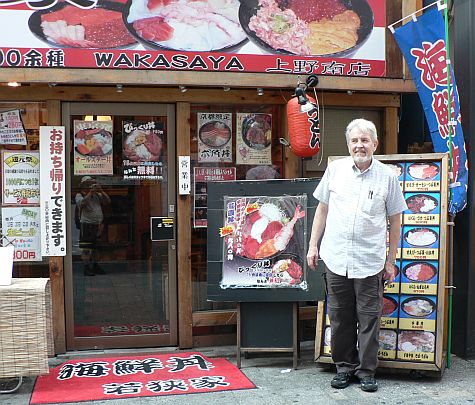The Ameyoko market is not necessarily a place where tourists visit, but a local neighbourhood where people live and shop.
A weekend — after the ISSS meeting, and before the Rendez meeting — provided a few additional days for sightseeing. G.A. hadn’t had much of a chance to see Tokyo. We went up to Ameyoko — up near Ueno Station — to stroll through the street market. We found a fish-and-rice restaurant where English isn’t spoken, and had to point at photographs on the menu.
We started at the south entry of the Ameyoko street market. This end seemed to have more clothing stores.
 Continue reading “2007/08/11 Ameyoko street market, Tokudai-ji, Tokyo“
Continue reading “2007/08/11 Ameyoko street market, Tokudai-ji, Tokyo“



